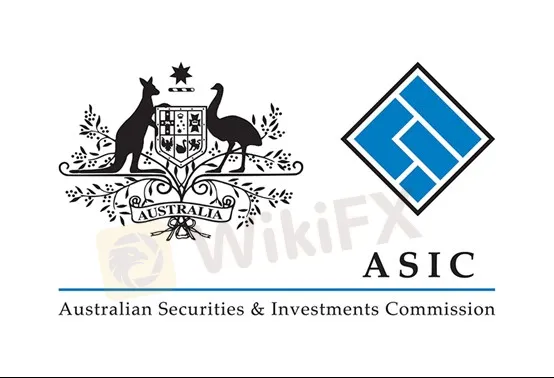简体中文
繁體中文
English
Pусский
日本語
ภาษาไทย
Tiếng Việt
Bahasa Indonesia
Español
हिन्दी
Filippiiniläinen
Français
Deutsch
Português
Türkçe
한국어
العربية
ASIC Temporarily Halts Holon’s Cryptocurrency Funds
Abstract:The funds are invested in Bitcoin, Ether, and Filecoin. The regulator alleges that the target market determination of the funds is inappropriate.

On Monday, the Australian Securities and Exchange Commission (ASIC) issued an interim stop order against Holon Investments Australia Limited, preventing the firm from offering or distributing three cryptocurrency funds to retail investors.
Take Advantage of the Biggest Financial Event in London. This year we have expanded to new verticals in Online Trading, Fintech, Digital Assets, Blockchain, and Payments.
The funds are Holon Bitcoin Fund, Holon Ethereum Fund, and Holon Filecoin Fund, each investing in a particular cryptocurrency. According to the financial regulator, all of the funds are non-compliant to target market determinations (TMDs).
These funds, as per ASIC, are not suited to the wide target market defined in the TMDs. The funds are targeted at investors with “medium, high, or very high” risk and return profiles, and who are willing to fund as a satellite component of up to 25 percent of their investment portfolio. The funds also allow investors to use them as a “solution/standalone component (75-100%) of their investment portfolio.”
The interim order, which is valid for 21 days, stops the funds from issuing interest.
A Volatile Market
The funds follow the crypto market volatility, and thus the returns also witnessed a rollercoaster ride over the past few months. The Holon Bitcoin Fund generated a return of 21.6 percent in July, only to shed 14.7 in the following month. Since its inception, the fund lost 2.6 percent. The Ether and Filecoin funds lost 6.4 percent and 2.7 percent, respectively, in August.
Holon also manages another fund holding the tech company stocks, which is not covered under the ASICs interim order. Interestingly, that mainstream fund, which invested in companies like Meta, Tesla, Alibaba, and Amazon, took the hardest hit over the last 12 months, losing 37 percent of its value. The overall return of that fund is now at 3.7 percent since its 2019 launch.
ASIC‘s decision against the crypto funds was triggered by the sector’s volatility and complex nature which makes the investments “risky and speculative”.
“ASIC made the interim orders to protect retail investors from potentially investing in funds that may not be suitable for their financial objectives, situation or needs,” the regulatory announcement stated.
“ASIC expects Holon to consider the concerns raised about the TMDs and take immediate steps to ensure compliance. If ASICs concerns are not addressed in a timely manner, final stop orders will be placed on the Funds.”

Disclaimer:
The views in this article only represent the author's personal views, and do not constitute investment advice on this platform. This platform does not guarantee the accuracy, completeness and timeliness of the information in the article, and will not be liable for any loss caused by the use of or reliance on the information in the article.
Read more

Top 10 Trading Indicators Every Forex Trader Should Know
Master the top 10 Forex trading indicators to analyze real-time Forex quotes, trends, and market signals. Learn strategies to boost accuracy and avoid mistakes.

Geopolitical Events: What They Are & Their Impact?
You've heard many times that geopolitical events have a significant impact on the Forex market. But do you know what geopolitical events are and how they affect the FX market? Let us learn about it today.

Why Do You Feel Scared During Trade Execution?
Trade execution is a pivotal moment for traders. It is when analysis turns into action, and potential profits or losses become reality. However, for many traders, this moment is accompanied by fear. Why does this happen, and how can you address it?

WikiEXPO Global Expert Interview: Simone Martin—— Exploring Financial Regulation Change
In the midst of financial innovation and regulation, WikiGlobal, the organizer of WikiEXPO, stays abreast of industry trends and conducts a series of insightful and distinctive interviews on pivotal topics. We are delighted to have the privilege of inviting Simone Martin for an in-depth conversation this time.
WikiFX Broker
Latest News
Geopolitical Events: What They Are & Their Impact?
Top 10 Trading Indicators Every Forex Trader Should Know
ASIC Sues Binance Australia Derivatives for Misclassifying Retail Clients
Why Do You Feel Scared During Trade Execution?
Revolut Leads UK Neobanks in the Digital Banking Revolution
Fusion Markets: Safe Choice or Scam to Avoid?
North Korean Hackers Steal $1.3bn in Cryptocurrency in 2024
Currency Calculator


